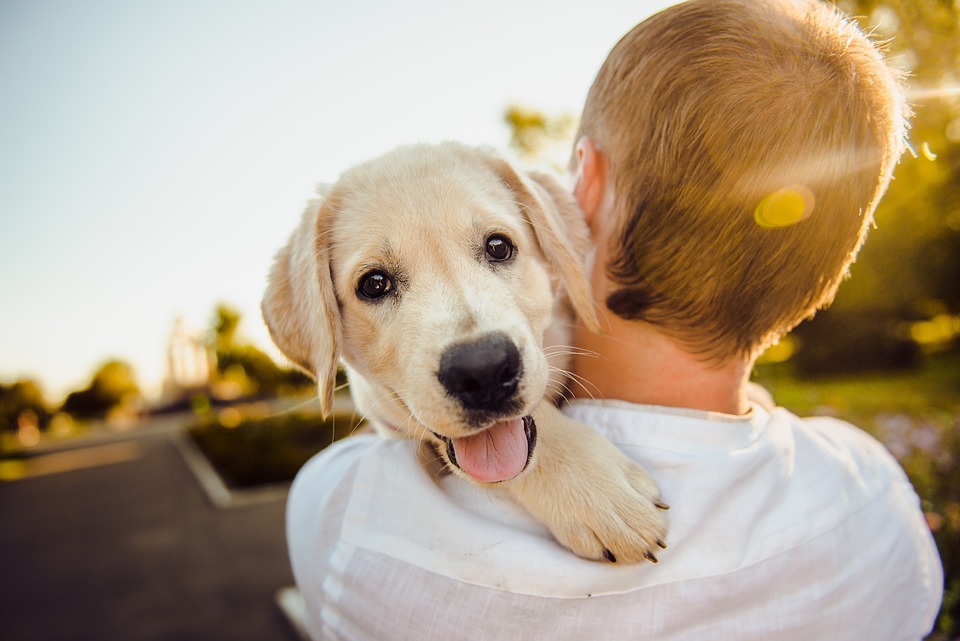 |
| Adopting a Dog or Puppy |
Bringing a new furry friend into your home can be an incredibly rewarding experience. Whether you're looking to adopt a dog or a puppy, there are several important considerations to keep in mind to ensure a smooth and successful transition for both you and your new four-legged family member.
Preparing for Adoption
Before you bring a dog or puppy into your home, it's important to make sure you're fully prepared to provide for their needs. This includes ensuring that you have the time, resources, and commitment necessary to care for a pet. Additionally, you'll need to make sure your living situation is suitable for a dog, and that all family members are on board with the decision to adopt.
YOU MAY LIKE Dog Adopting:
Adopting an Older Dog vs a Puppy: Pros and ConsAre you ready to adopt a dog?
Adopting a Rescue Dog
Finding A Dog
A Guide to Finding the Perfect Dog for Your Home
10 Tips for the First 30 Days After Adopting a Dog
Dog and Puppy Adoption
16 THINGS TO THINK ABOUT BEFORE ADOPTING A DOG
Adopting a puppy: What to expect
Choosing the Right Dog or Puppy
When it comes to choosing the right dog or puppy for your family, it's important to consider factors such as size, energy level, and temperament. If you have young children, you'll want to choose a breed known for being good with kids. If you have allergies, you may need to consider hypoallergenic breeds. It's also important to consider the amount of exercise and grooming that different breeds require.
Adopting from a Shelter
One of the best ways to find a new pet is by visiting your local animal shelter. By adopting from a shelter, you'll not only be giving a deserving animal a second chance, but you'll also be supporting a noble cause. Most shelters have a variety of dogs and puppies to choose from, and the staff can help you find a pet that matches your lifestyle and preferences.
The Adoption Process
Once you've found the perfect dog or puppy, you'll need to go through the adoption process. This typically involves filling out an application, meeting with a counselor to discuss your lifestyle and expectations, and paying an adoption fee. In some cases, you may need to schedule a home visit to ensure that your living environment is suitable for a pet.
Bringing Your New Pet Home
After the adoption process is complete, it's time to bring your new pet home. Be sure to have all the necessary supplies ready, such as food, water, a bed, toys, and grooming tools. It's also a good idea to schedule a visit to the veterinarian to make sure your new pet is healthy and up to date on vaccinations.
Conclusion
Adopting a dog or puppy is a big decision that comes with great responsibility, but it can also bring immense joy and fulfillment. By taking the time to prepare for adoption, choosing the right pet, and going through the adoption process, you can ensure a smooth transition and a happy life for your new furry friend.
Frequently Asked Questions
Q: What is the difference between adopting and buying a pet?
A: When you adopt a pet from a shelter, you are giving a deserving animal a second chance and supporting a noble cause. When you buy a pet from a breeder or pet store, you are contributing to the demand for purebred animals and potentially supporting unethical breeding practices.
Q: How can I help my new pet adjust to their new home?
A: It's important to be patient and understanding as your new pet adjusts to their new surroundings. Provide plenty of love, reassurance, and positive reinforcement, and be sure to establish a routine to help them feel secure.
Q: What should I do if my new pet has behavioral issues?
A: If your new pet exhibits behavioral issues, it's important to seek professional help from a certified dog trainer or behaviorist. They can provide guidance and support to address any problems and help your pet become a well-adjusted member of your family.
Q: How can I provide the best care for my new pet?
A: Providing the best care for your new pet involves meeting their basic needs for food, water, exercise, and veterinary care, as well as providing plenty of love, attention, and mental stimulation. It's important to be a responsible pet owner and prioritize your pet's well-being.
YOU MAY LIKE:
The 10 Least Aggressive Dog BreedsThe 10 Most Active Dog Breeds
The 10 Most Obedient Dog Breeds
The 10 Most Adorable Small Dog Breeds
The 10 Most Affectionate Dog Breeds
The 10 Most Ancient Dog Breeds
The 10 Smallest Dog Breeds in the World
10 Fun Facts About Boston Terriers You Didn't Know
Matching Dog Breeds to Your Lifestyle


